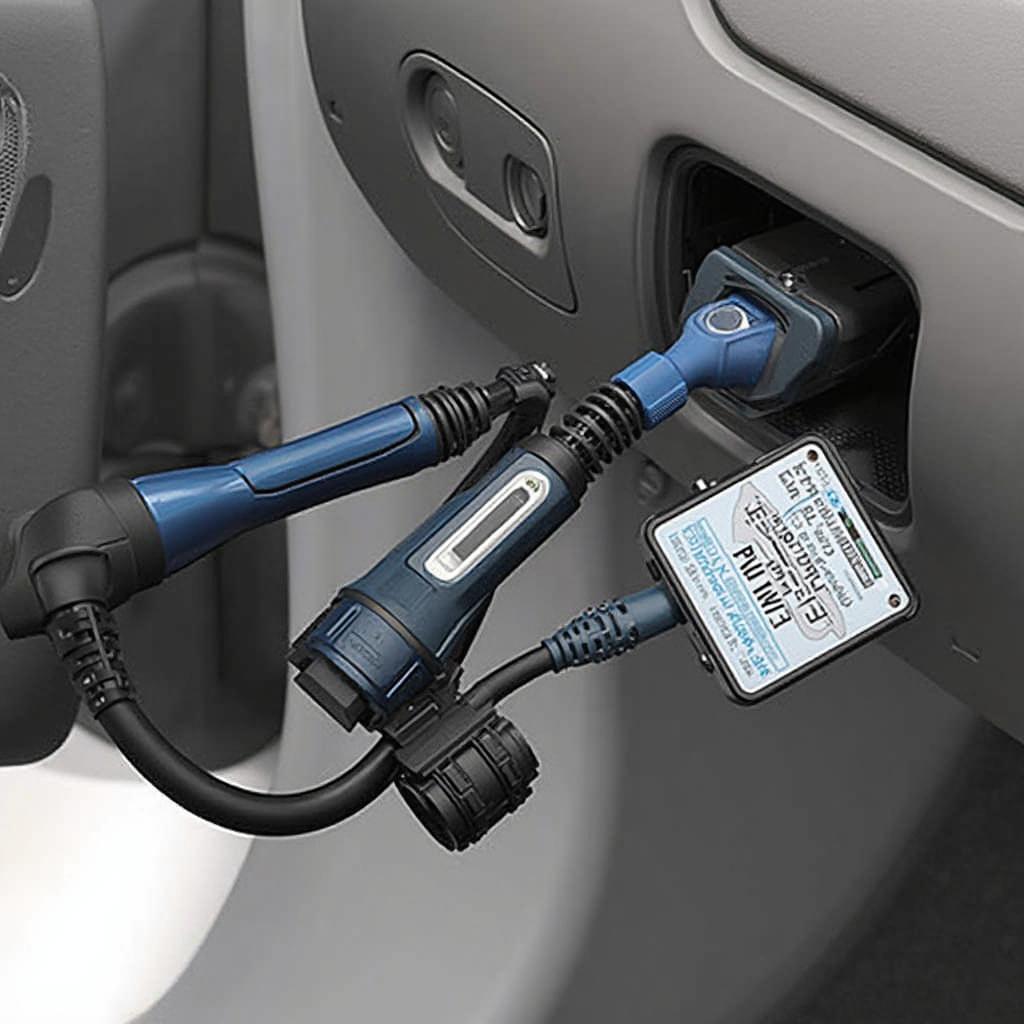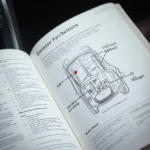OBD2 extension cables, adapters, and tools are essential for any automotive enthusiast or professional. They provide flexibility and access, enhancing the functionality of your OBD2 scanner. Whether you’re a seasoned mechanic or a DIYer, understanding the different types of OBD2 extensions and their applications can significantly improve your diagnostic experience.
Types of OBD2 Extensions and Their Uses
OBD2 extensions come in various forms, each serving a specific purpose. Choosing the right one depends on your needs and the task at hand. Let’s delve into the most common types:
OBD2 Extension Cables
These are the most basic type of extension, simply providing extra length to your existing OBD2 cable. They are invaluable when the OBD2 port is difficult to reach, such as in some older vehicles or when working under the dashboard. Extension cables come in varying lengths, allowing you to choose the perfect fit for your situation.
OBD2 Splitter Cables
A splitter cable allows you to connect multiple devices to your OBD2 port simultaneously. This is useful for running diagnostic software alongside other tools, like a data logger or performance monitor. However, ensure your devices are compatible to avoid conflicts.
 OBD2 Splitter Cable Connecting Multiple Devices
OBD2 Splitter Cable Connecting Multiple Devices
OBD2 Adapters
Adapters convert the OBD2 port to different connector types, allowing you to use specialized diagnostic tools or connect to older vehicles with non-standard OBD ports. There are adapters for various protocols, including GM-OBD1, and for different connector styles.
Right Angle OBD2 Adapters
These adapters allow you to connect your OBD2 scanner at a 90-degree angle. This can be incredibly useful in tight spaces, preventing cable strain and damage. They are particularly helpful for vehicles with awkwardly positioned OBD2 ports.
Choosing the Right OBD2 Extension
Selecting the appropriate OBD2 extension involves considering several factors:
- Cable Length: Determine the required length based on the distance between your OBD2 port and your workspace. Too short, and it’s useless; too long, and it can become a tripping hazard.
- Connector Type: Verify the connector type matches your OBD2 scanner and vehicle.
- Build Quality: Opt for durable, well-constructed cables and adapters to ensure reliable performance and longevity.
- Compatibility: Check compatibility with your diagnostic software and other connected devices.
Benefits of Using OBD2 Extensions
Utilizing OBD2 extensions offers several advantages:
- Improved Accessibility: Reach difficult-to-access OBD2 ports with ease.
- Enhanced Flexibility: Work comfortably from a distance without being restricted by cable length.
- Simultaneous Connections: Use multiple diagnostic tools simultaneously with splitter cables.
- Protection from Damage: Prevent cable strain and damage with right-angle adapters.
Conclusion
OBD2 extensions are indispensable tools for anyone working with vehicle diagnostics. They provide increased accessibility, flexibility, and functionality, ultimately enhancing your diagnostic capabilities and streamlining your workflow. Selecting the right obd2 extension can significantly improve your diagnostic experience.
FAQ
- What is the standard length of an OBD2 extension cable? They vary, but common lengths are 6ft, 10ft, and 25ft.
- Can I use an OBD2 extension with any scanner? Generally, yes, but check compatibility with your specific scanner.
- What is the purpose of a right-angle OBD2 adapter? It allows connection in tight spaces, preventing cable damage.
- Are all OBD2 splitters compatible with all devices? No, ensure your devices are compatible to avoid conflicts.
- Where can I purchase reliable OBD2 extensions? Reputable automotive parts stores and online retailers.
Common OBD2 Extension Scenarios
- Diagnosing a vehicle parked in a tight space.
- Using multiple diagnostic tools simultaneously for performance tuning.
- Accessing an OBD2 port located under the dashboard.
- Protecting the OBD2 port and cable from damage during long-term data logging.
Further Reading
Explore more articles on our website about OBD2 scanners and diagnostic tools. Learn about choosing the right scanner for your needs and troubleshooting common OBD2 issues.
For support, contact us via WhatsApp: +1(641)206-8880, Email: [email protected], or visit us at 789 Elm Street, San Francisco, CA 94102, USA. Our customer service team is available 24/7.
